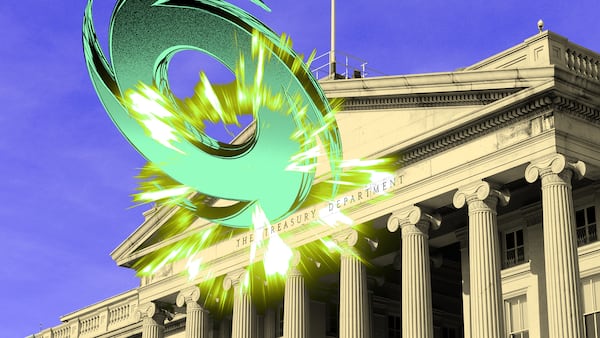- Roman Storm's case will test the legal boundaries of financial privacy.
- He is the second Tornado Cash dev to face criminal trial.
- The Ethereum Foundation and other supporters say he is being wrongfully prosecuted.
A version of this story appeared in our The Guidance newsletter on July 7. Sign up here.
Hi! Ed here.
If Roman Storm is feeling hard done by, it’s understandable.
At a time when crypto companies and founders are getting enforcement charges dropped or suspended by the Trump administration, Storm is set to go to trial on money laundering charges beginning July 14.
It’s true, the Tornado Cash co-founder and developer was indicted by a US grand jury in 2023 for money laundering and sanctions violations. A criminal matter is far more serious than a civil suit brought by the US Securities and Exchange Commission.
In this case, the stakes are even higher.
Receptive courts
The Justice Department accused Storm and his colleague Roman Semenov of handling more than $1 billion for criminals, including the Lazarus Group, the shadowy, North Korean hacking ring that has allegedly looted billions from crypto projects.
Even so, US courts have been surprisingly receptive to the arguments mounted by Storm and his financial privacy allies.
With support from Coinbase and the Ethereum Foundation, Storm, as well as civil plaintiffs in a separate matter, has argued that the government is putting software code on trial, which is wrong.
At first, the tack was deemed a long shot by legal experts.
Sure enough, Alexey Pertsev, another developer of the crypto mixer, was convicted of money laundering by a Dutch court and sentenced to a five-year prison term in May 2024 on charges similar to those Storm faces.
The Dutch judges rejected Pertsev’s argument that he shouldn’t be held responsible for smart contracts that automatically process transactions on Tornado Cash.
Stunning decision
But then last November, a US appeals court stunned the crypto community by ruling the opposite way in a civil case brought against the government by Ethereum devs.
In a decision dubbed an “incredible win,” the court said that when it comes to enforcing sanctions, existing law doesn’t cover blockchain-based applications, just people and companies.
In other words, the US Treasury Department was wrong to sanction Tornado Cash in 2022.
And in March, Treasury, citing “novel legal and policy issues” raised by “evolving technology and legal environments,” removed Tornado Cash from its sanctions list.
The next month, the Justice Department released a four-page memo stating that it would largely stop pursuing cases against crypto mixers “for the acts of their end users or unwitting violations of regulations.”
Given the direction of travel, Storm and his lawyers were hopeful the charges against him would be dropped.
No dice. Now Storm is facing a potential maximum sentence of 20 years if he’s convicted. And crypto privacy supporters are confronting a major test of their own.
ICYMI
- Ripple and Circle are applying to become banks — here’s why that mattersRipple, the company that issues RLUSD, and Circle, responsible for stablecoin USDC, have both applied for US National Trust Bank charters, a rare move that if approved would bring them under federal oversight, and closer to the heart of the US financial system.
- Offshore firms beware — US Judge gives Celsius greenlight to proceed in $4bn lawsuit against TetherA judge’s decision to let Celsius proceed with its $4 billion lawsuit against Tether paves the way for US entities to pursue foreign crypto firms, according to a legal expert.
- FTX freezes $500m in distributions tied to China and crypto-restricted nationsChina’s crypto crackdown prevents the FTX Recovery Trust from paying out around $435 million to customers caught up in the fallout from Sam Bankman-Fried’s crumbled business empire, according to a Wednesday court filing.
Story of the Week
Suspicious Polymarket activity triggers furore as bettors claim prediction outcomes are being manipulated
Polymarket, the crypto-based prediction market platform, has long been lauded for its accuracy in anticipating event outcomes.
Some research shows that the platform’s markets, which are swayed by bettors putting real money on the line, often generate odds that are closer to reality than other sources.
Four people who participate in Polymarket’s prediction markets told DL News that a number of high-rolling bettors appear to be working together to swing the outcomes in their favour.
Post of the Week
Arthur Hayes, the loquacious crypto investor and blogger, weighed in on a favourite subject this week — loose US monetary and fiscal policies. In light of the US Congress’ approval of President Donald Trump’s deficit-ballooning budget bill, Hayes predicted stablecoins will turbocharge the government’s reliance on debt.
‘The stablecoin Trojan horse is already inside the fortress. This isn’t DeFi or financial freedom. It’s debt monetisation dressed in Ethereum drag," said Hayes.
Edward Robinson is the story editor for DL News. Contact the author at ed@dlnews.com.





